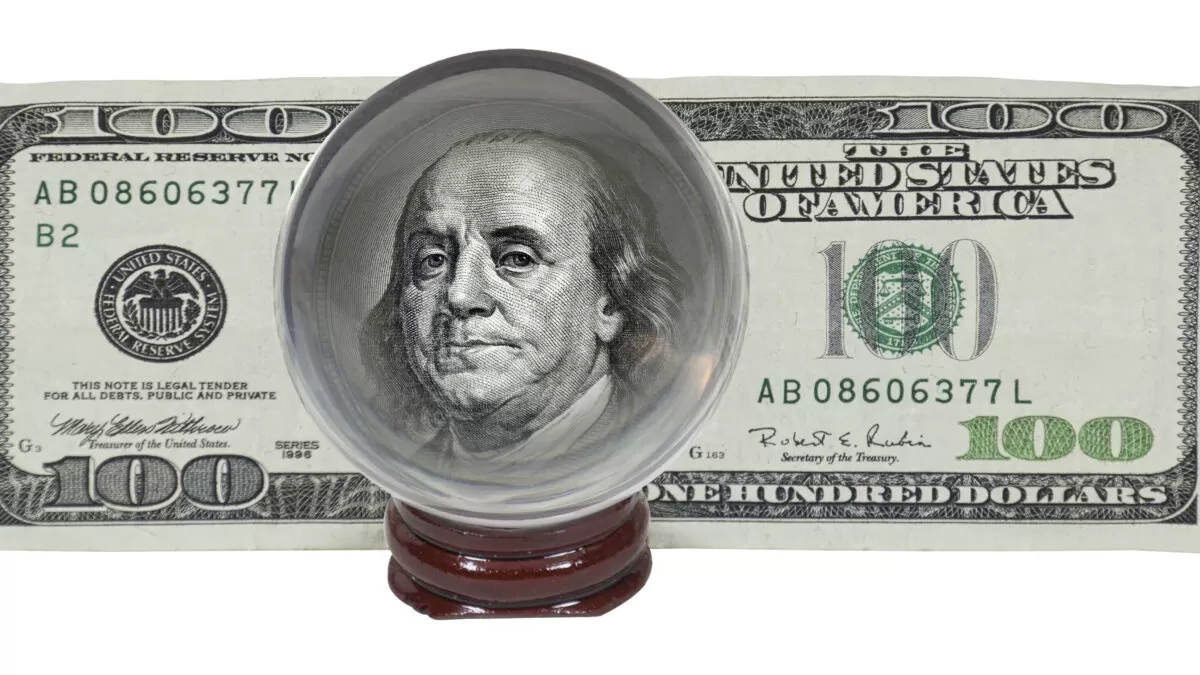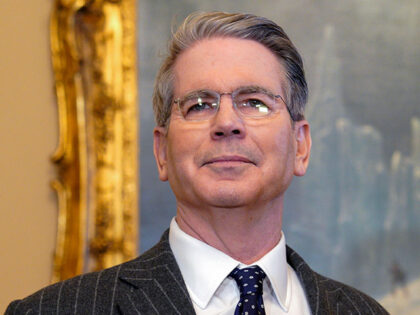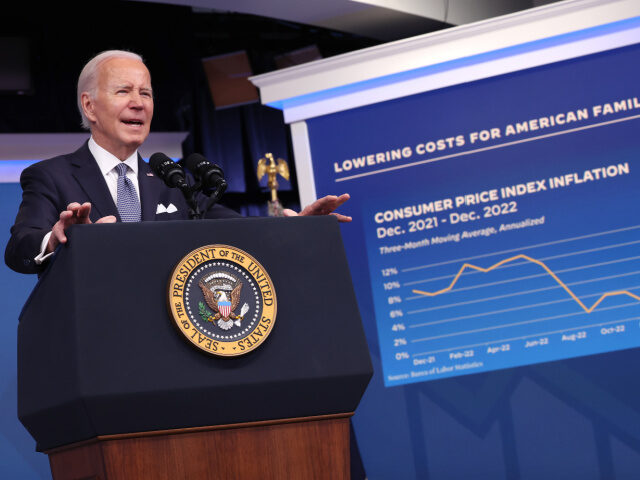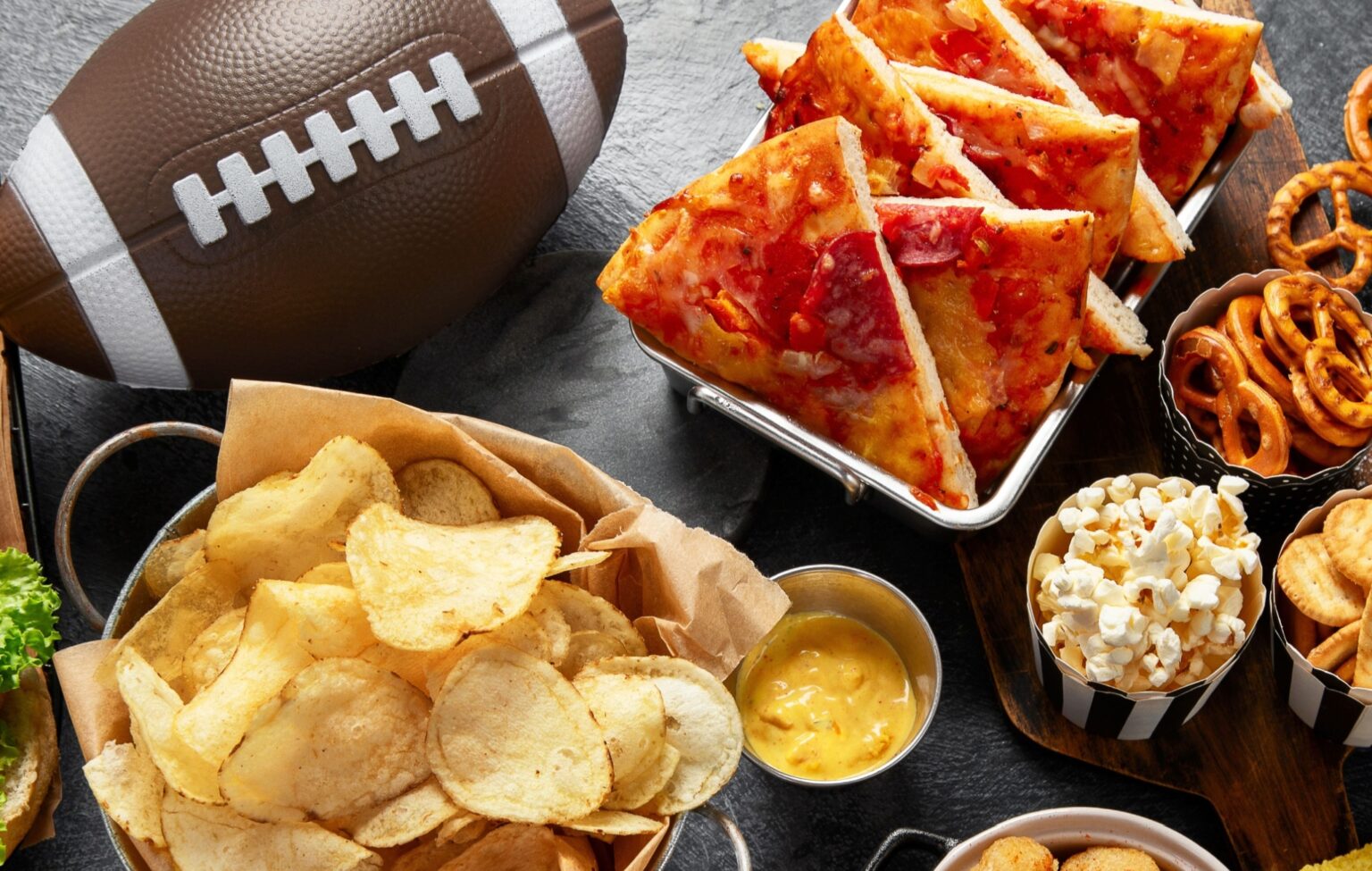from CNBC Television
Peter Schiff: They Completely Missed the Point On Inflation
by Peter Schiff
Schiff Sovereign

Once again, the media missed the real story.
The Wall Street Journal and New York Times, among many others, reported that consumer prices, as measured by the Consumer Price Index, rose 3% year-over-year.
And everybody seems to accept that story, that annual inflation is now up to 3%. This is a small uptick from the annual rate that was reported in December, which was 2.9%.
Federal Reserve Chairman Jerome Powell even told Congress yesterday that we’re “close” to the 2% inflation target, “but we’re not quite there yet,” as if things were moving in the right direction. And lawmakers just nodded along. No one challenges the Fed Chairman. Not the politicians. Not the media.
The Growing Risk of Stagflation Bodes Well For Gold & Silver
by Jesse Colombo
Silver Seek
 U.S. inflation expectations have surged over the past few months, and this has been a bullish driver for gold and silver.
U.S. inflation expectations have surged over the past few months, and this has been a bullish driver for gold and silver.
Yesterday, the U.S. Consumer Price Index came in hotter than expected, reinforcing those inflation concerns and raising the specter of stagflation as economic growth slows and layoffs increase.
While these developments are troubling for the broader economy, they create a highly favorable environment for precious metals, which I will explore in this article.
Yesterday’s report showed that the Consumer Price Index (CPI) rose at an annual rate of 3.0% in January, surpassing the expected 2.9%. Meanwhile, the core CPI, which excludes volatile food and energy prices, climbed 3.3% annually—higher than the anticipated 3.1%.
Trump May Have to Grapple with Returning Inflation
Cutting government spending and calling off the trade war would be steps in the right direction.
by J.D. Tuccille
Reason.com
 More than one issue boosted Donald Trump ahead of main rival Kamala Harris and back into the White House, but inflation was key among them. A federal spending spree diminished the purchasing power of the dollar and sent prices higher, inducing sticker shock among Americans that influenced their choices on Election Day. Now we’re seeing indications that inflation is back, and the new administration will have to live up to promises to bring the cost of living under control.
More than one issue boosted Donald Trump ahead of main rival Kamala Harris and back into the White House, but inflation was key among them. A federal spending spree diminished the purchasing power of the dollar and sent prices higher, inducing sticker shock among Americans that influenced their choices on Election Day. Now we’re seeing indications that inflation is back, and the new administration will have to live up to promises to bring the cost of living under control.
Prices Rise Faster Than Expected
This week, the Consumer Price Index (CPI) came in higher than expected. “The all items index rose 3.0 percent for the 12 months ending January, after rising 2.9 percent over the 12 months ending December,” according to the press release from the Bureau of Labor Statistics.
PPI Inflation Accelerates to +3.5% Year-Over-Year, Worst in Two Years, Driven by Services Amid Massive Up-Revision of Services Inflation
by Wolf Richter
Wolf Street
 Inflation is festering and accelerating in services (two-thirds of overall PPI), not in goods.
Inflation is festering and accelerating in services (two-thirds of overall PPI), not in goods.
As has been the case for many months, today’s Producer Price Index for January included big up-revisions of the prior month, driven by a whopper up-revision for services which account for two-thirds of the overall PPI. On top of these upwardly revised December figures, the PPI rose further in January.
In January, the overall PPI accelerated to an increase of 3.51% year-over-year, the worst increase since February 2023, following a persistent zigzag line higher from the low point of near 0% in June 2023, driven largely by the services PPI.
Bessent: Any Price Increase From Tariffs Would Be ‘Slight,’ ‘Transitory,’ May Not Happen and Inflation Will Fall Overall
by Ian Hanchett
Breitbart.com
 On Thursday’s broadcast of the Fox News Channel’s “Ingraham Angle,” Treasury Secretary Scott Bessent stated that he isn’t sure tariffs will cause prices to rise because a large amount will be absorbed by both currency and the foreign producers, “But if they do, we could see a one-time, slight increase, and it would be very slight,” and “The ultimate transitory” and inflation will fall on the whole due to other policies.
On Thursday’s broadcast of the Fox News Channel’s “Ingraham Angle,” Treasury Secretary Scott Bessent stated that he isn’t sure tariffs will cause prices to rise because a large amount will be absorbed by both currency and the foreign producers, “But if they do, we could see a one-time, slight increase, and it would be very slight,” and “The ultimate transitory” and inflation will fall on the whole due to other policies.
Host Laura Ingraham asked, “Now, the usual suspects are asking why won’t the tariffs, if they’re raised, create inflation, and to that you say?”
Bessent answered, “Well, Laura, during the great inflation of ’22, ’23, all we heard was that it was transitory. The ultimate transitory, the hit is, if prices go up, and I’m not sure they will, because a huge amount is absorbed by the currency, a big amount is absorbed by the foreign producer.
CPI Rises for Fourth Straight Month
by Mike Maharrey
GoldSeek
 It’s getting harder and harder to pretend the inflation problem isn’t a problem.
It’s getting harder and harder to pretend the inflation problem isn’t a problem.
Last month, the markets and the mainstream media threw a party when the CPI data came in “cooler than expected.” CNBC led with this rosy summary. “U.S. stocks popped on Wednesday for their best day since November, on the back of the cooler-than-expected inflation reading.”
However, the actual CPI data told a different story. It was the same narrative we’d seen for several months – the inflation monster slithering back out from under the bed.
And the January inflation data was even more damning.
White House: Inflation Numbers Show Biden Administration ‘Left Us with a Mess’
by Nick Gilbertson
Breitbart.com
 WASHINGTON – White House press secretary Karoline Leavitt said Wednesday that January’s inflation numbers show the Biden administration left “a mess” for the Trump administration to handle.
WASHINGTON – White House press secretary Karoline Leavitt said Wednesday that January’s inflation numbers show the Biden administration left “a mess” for the Trump administration to handle.
Leavitt spoke during a press briefing in the afternoon after figures from the Department of Labor showed the consumer price index (CPI) increased much higher than expected. It climbed 0.5 percent from December into January, and consumer prices are up three percent compared to January 2024.
“On the inflation point, we did receive those numbers, and they were worse than expected, which tells us that the Biden administration indeed left us with a mess to deal with,” Leavitt said.
“It’s far worse than I think anybody anticipated because, unfortunately, the previous administration was not transparent in where the economy truly was,” she added.
The Fed’s Inflation Fumble Spiked Your Super Bowl Costs
Inflation seems to be taking a time-out, but high prices are here to stay. What will your pizza and beer cost this year?
by Peter C. Earle
The Daily Economy
 With the biggest sporting event of the year approaching, so too does an opportune time to review the prices associated with enjoying that experience — whether in the stadium or among the comforts of home. Like last year, this article will break down costs associated with attending the game in person (ticket prices, travel, and accommodations) as well as the cost of hosting a Super Bowl party at home from food and drinks to energy costs. Those prices are all the more meaningful when viewed in historical context, so changes over the past year and since the pandemic are offered to highlight not only the impact of inflation but shifts in the demand for high-end experiences. One of the unseen costs of inflation is the erosion of traditions and cultural celebrations. We can understand the personal finance implications with some Super Bowl fandom data points.
With the biggest sporting event of the year approaching, so too does an opportune time to review the prices associated with enjoying that experience — whether in the stadium or among the comforts of home. Like last year, this article will break down costs associated with attending the game in person (ticket prices, travel, and accommodations) as well as the cost of hosting a Super Bowl party at home from food and drinks to energy costs. Those prices are all the more meaningful when viewed in historical context, so changes over the past year and since the pandemic are offered to highlight not only the impact of inflation but shifts in the demand for high-end experiences. One of the unseen costs of inflation is the erosion of traditions and cultural celebrations. We can understand the personal finance implications with some Super Bowl fandom data points.
Attending Super Bowl LIX in Person
As Sunday, February 11 approaches, airlines have responded to increased demand by adding flights to New Orleans, leading to elevated airfares. Southwest Airlines has introduced 31 additional flights connecting the championship team cities of Kansas City and Philadelphia to New Orleans, with one-way fares ranging from $384 to $798.
Beneath the Skin of CPI Inflation: Worst Month-to-Month Acceleration of CPI Since August 2023, On Spikes in Used Vehicles, Non-Housing Services, Food, Energy
by Wolf Richter
Wolf Street
 Inflation has been going in the wrong direction relentlessly month-to-month since June.
Inflation has been going in the wrong direction relentlessly month-to-month since June.
Inflation dished out another bad surprise with a big increase in January from December, which wasn’t a surprise because inflation, once it gets going, is known to do that. This time, the hot spots were durable goods, fueled by the continued massive month-to-month increases in used vehicle prices, and non-housing services, such as auto insurance, admissions, subscriptions, etc. Food and energy prices also jumped in January. Rent inflation accelerated. But at least the CPI for apparel and shoes dropped in January.
Inflation Increased in January, Posing Obstacle for Trump Tariff Plans
Consumer prices rose 3% in January compared to a year ago, data showed.
by Max Zahn
ABC News
 Consumer prices rose 3% in January compared to a year ago, ticking up from the previous month and posing an obstacle for Trump administration tariff policies that many economists expect to raise some prices, government data on Wednesday showed. The inflation reading came in higher than economists had predicted.
Consumer prices rose 3% in January compared to a year ago, ticking up from the previous month and posing an obstacle for Trump administration tariff policies that many economists expect to raise some prices, government data on Wednesday showed. The inflation reading came in higher than economists had predicted.
The fresh data extends a bout of resurgent inflation that stretches back to last year. Two weeks ago, the Federal Reserve opted to hold interest rates steady in part out of concern regarding the stubborn price increases.
Egg prices, a closely watched symbol of rising costs, soared 53% in January compared to a year ago. An avian flu has decimated the egg supply, lifting prices higher.
